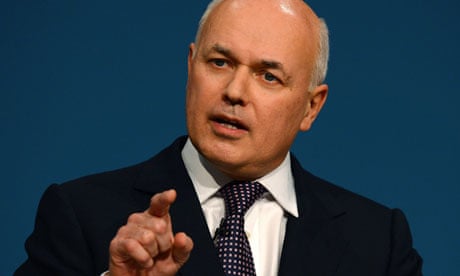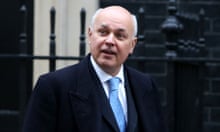A cap on the amount of benefits people can receive begins on Monday in a policy that is being trialled in parts of the capital.
The cap, being introduced in four London boroughs – Croydon, Bromley, Haringey and Enfield – will see couples and single parents receive no more than £500 a week in benefits. The limit for single people is £350, although there are some exemptions.
National implementation of the cap will begin in July, and the policy is scheduled to come fully into force by the end of September.
The cap is being brought in to cut spending and to bring benefits payments into line with average income.
The work and pensions secretary, Iain Duncan Smith, said last week: "The benefit cap sets a clear limit for how much support the welfare state will provide – the average wage for working households.
"But it's also a strong incentive for people to move into work and even before the cap comes in we are seeing thousands of people seeking help and moving off benefits.
"We have a very clear message: we will provide support to those who need it, but the days of outrageous claims giving people incomes far above those of working families are over."
The government last week claimed the number of people expected to be hit by the cap had fallen from 56,000 to 40,000, with 8,000 claimants finding work through JobCentre Plus.
Duncan Smith hailed the figures, saying the cap had provided a strong incentive for people to look for jobs, even before it had started to affect their incomes.
But Jonathan Portes, director of the National Institute of Economic and Social Research and a former chief economist at the Department for Work and Pensions, said there was no evidence that the cap had affected people's behaviour.
The cap was originally expected to save £275m a year from the welfare bill.





Comments (…)
Sign in or create your Guardian account to join the discussion